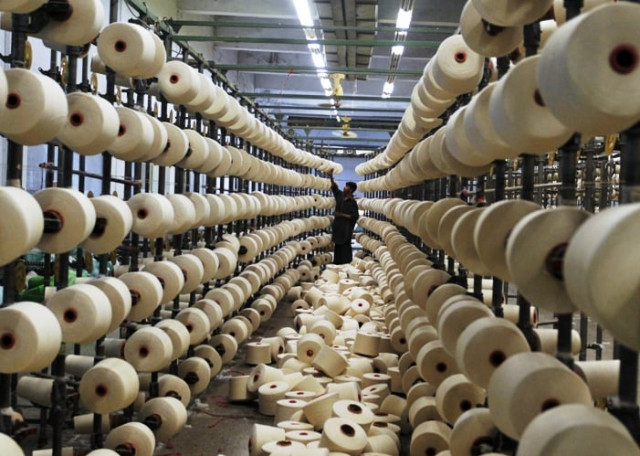Inefficiency: Textile industry admits it has a productivity problem
Lobbyists for the industry, however, remain firmly in denial, blaming the government instead.

Indeed some firms are already investing in efficiency audits, such as Afroze Textile Industries, a Karachi-based exporter of towels and linens.
“It is difficult for anyone to find their own shortcomings and then to rectify them,” said Feroz Alam Lari, the company’s CEO. “So we give much importance to the services of experts who could tell us how we can improve our efficiency levels.”
The textile lobby, however, remained firm in its denial that the industry had a competitiveness problem, claiming that every calamity befalling the textile industry was the fault of the government and that the firms themselves were entirely blameless.
Mohsin Aziz, the head of the All Pakistan Textile Mills Association (APTMA), the largest textile lobby in the country, said: “Based on the recent surveys of foreign consultants, we believe that the overall Pakistan’s textile mills are quite efficient. The real problems of industry are power shortages and high interest rates in Pakistan that are hindering the growth of industries in the country.”
But while most textile executives acknowledged that the power crisis was a problem, they also say that it is not an insurmountable one. “It is true that Pakistan has been affected by the continued power shortages,” Sohail Tabba, CEO of Gadoon Textile Mills and Fazal Textile Mills told The Express Tribune, “But unless we work on efficient power systems, we cannot control power shortages.”
“Improvement in efficiency levels is the key to success without which one cannot tackle present problems of textile industry like power shortages and rising non-performing loans,” he added.
Most analysts agree that the problems of textile industry are not just because of power shortages and security problems in the country and can be attributed to a highly inefficient business model.
“The textile industry of Pakistan is one of the least efficient industries of country,” said Muzammil Aslam, managing director at Emerging Economics Research. “With continuous government support of last five decades, most of our textile industries have become lethargic and have totally ignored the basics of efficiency.”
Many companies have only spinning or weaving facilities, which exposes them to wild fluctuations in global cotton prices. Pakistan’s textile exports declined by 10.3% in fiscal 2012, largely due to falling cotton prices, after having soared in the previous year due to skyrocketing international prices of cotton. The most efficient and successful textile companies around the world are composite companies that can start with raw cotton and end with a finished garment, Aslam said.
Published in The Express Tribune, August 27th, 2012.



















COMMENTS
Comments are moderated and generally will be posted if they are on-topic and not abusive.
For more information, please see our Comments FAQ